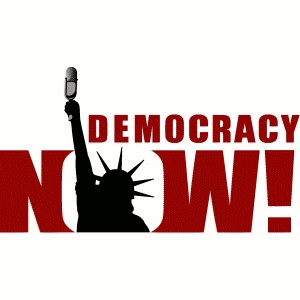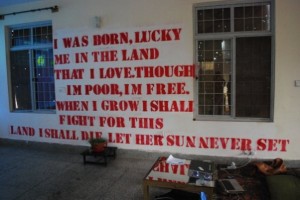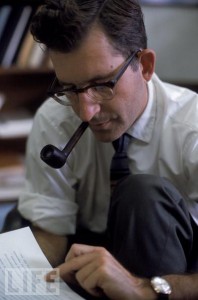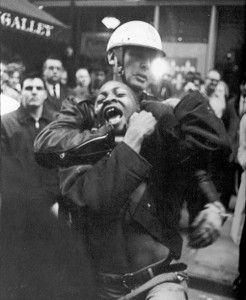Musab Younis
Arts & Culture, Columns, CounterSpin, Politics - Sunday, September 5, 2010 2:10 - 8 Comments
CounterSpin: Should we trust the newspaper?

In the first of his 'Counterspin' series of columns, Ceasefire Deputy Editor Musab Younis examines the effect that increasingly concentrated media ownership is having on the reliability and accuracy of news reporting. He asks whether systematic distortion could be linked to the ownership structure of the press - and, if so, what prospects there are for a new popular, democratic media.
Arts & Culture, Features - Saturday, August 21, 2010 12:09 - 1 Comment
Arts & Culture: Redo Pakistan
 With Pakistan now a major item on the news agenda – instability, violence, and recently, of course, the devastating floods – what hope is there for Pakistani artists? Can they hope to address the situation of the country in a way that could possibly make a difference? Is the contemporary art world just too Eurocentric to let them in?
Musab Younis, Ceasefire deputy editor, speaks to the curators of an innovative new art project, ‘Redo Pakistan’, which has issued a call to artists to ‘Declare War Against the Present Time.’
With Pakistan now a major item on the news agenda – instability, violence, and recently, of course, the devastating floods – what hope is there for Pakistani artists? Can they hope to address the situation of the country in a way that could possibly make a difference? Is the contemporary art world just too Eurocentric to let them in?
Musab Younis, Ceasefire deputy editor, speaks to the curators of an innovative new art project, ‘Redo Pakistan’, which has issued a call to artists to ‘Declare War Against the Present Time.’
Ceasefire Bites, Features, Politics, Profiles - Monday, December 7, 2009 12:14 - 0 Comments
Chomsky: London lectures and an 81st birthday
 Today, Noam Chomsky is 81. A few weeks ago, at his London lecture series - widely anticipated to be his last in the UK - he addressed crowds numbering in their thousands. Musab Younis covered his talks for Ceasefire.
Today, Noam Chomsky is 81. A few weeks ago, at his London lecture series - widely anticipated to be his last in the UK - he addressed crowds numbering in their thousands. Musab Younis covered his talks for Ceasefire.
Features - Tuesday, April 7, 2009 21:21 - 24 Comments
Correcting the media narrative of the G20 protests on April 1, 2009
The media coverage of the G20 protests has been systematically biased, writes Musab Younis - ignoring the violent policing, the tactic of open-air imprisonment of demonstrators, and the real chronology of events. "It has taken remarkable obedience by the press," writes Musab, "to refuse to ask these questions."Interviews, Profiles - Friday, January 9, 2009 4:35 - 1 Comment
Interview Gavin Hayes – Can Labour be saved?
It is now a common assumption that Labour is in a state of collapse. Yet there are those, like as the influential pressure group Compass, who think it can be saved. Gavin Hayes, its General Secretary, spoke to Musab Younis about the super rich, Thatcher and revolution.Interviews, Profiles - Friday, January 9, 2009 4:30 - 1 Comment
Interview Michael Albert – On the death of capitalism
Musab Younis Michael Albert is a renowned activist, speaker and writer who was elected President of the MIT student body during the 1960s, and expelled for his vocal and direct anti-war activism. He is the co-founder of ZNet, an independent media centre which incorporates the successful, ad-free magazine ZMag. Albert is perhaps best-known for his […]Features - Saturday, April 26, 2008 18:05 - 7 Comments
What we can learn from Black Power
 In less than 200 pages, Black Power: The Politics of Liberation in America, written by Stokley Carmichael and Charles Hamilton, virtually decimates any book published recently in terms of perception, understanding and potential.
In less than 200 pages, Black Power: The Politics of Liberation in America, written by Stokley Carmichael and Charles Hamilton, virtually decimates any book published recently in terms of perception, understanding and potential.

